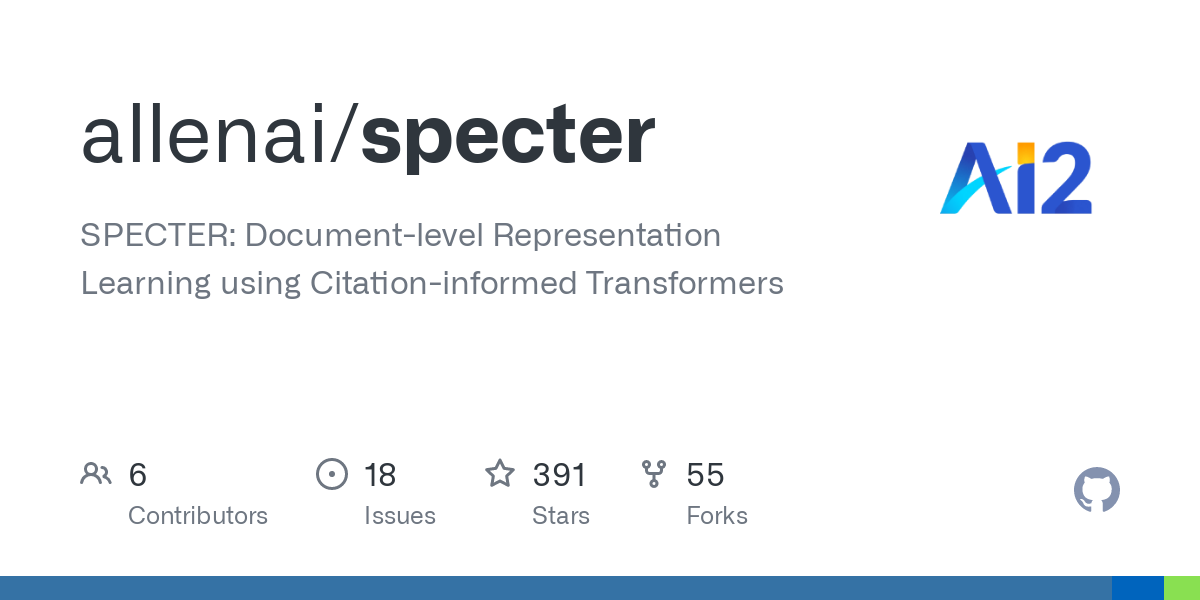Introduction
The purpose of this post will be to show you how to generate Specter Embeddings specifically for the S2AND author-disambiguation algorithm. Specter embeddings are one of the most important features used in S2AND.
The developers of the specter embedding models have shared their model here, freely available for anyone to use.
My implementation of the code can be found in this repo.
The code
Without too much to waste, here’s the fully code that will generate specter embeddings for a give papers.json file.
import json
import pickle
import numpy as np
from transformers import AutoTokenizer, AutoModel
import os
from s2and.consts import PROJECT_ROOT_PATH
import argparse
def process_papers(input_file, output_file, data_dir):
# define data dir
dataset_name = data_dir
DATA_DIR = os.path.join(PROJECT_ROOT_PATH, 'data', dataset_name)
papers_path =os.path.join(DATA_DIR, dataset_name + "_papers.json")
# load model and tokenizer
tokenizer = AutoTokenizer.from_pretrained('allenai/specter')
model = AutoModel.from_pretrained('allenai/specter')
# read papers from input file
with open(input_file, 'r') as f:
data = json.load(f)
# extract title and abstract fields from the data
papers = []
paper_ids = []
for key, paper_data in data.items():
title = paper_data['title']
abstract = paper_data.get('abstract', '')
paper_ids.append(paper_data['paper_id'])
papers.append({'title': title, 'abstract': abstract})
title_abs = [d['title'] + tokenizer.sep_token + (d.get('abstract') or '') for d in papers]
# preprocess the input
inputs = tokenizer(title_abs, padding=True, truncation=True, return_tensors="pt", max_length=512)
result = model(**inputs)
# take the first token in the batch as the embedding
embeddings = result.last_hidden_state[:, 0, :].detach().numpy()
# create tuple with embeddings and paper ids
#embeddings_with_ids = (embeddings,paper_ids)
embeddings_with_ids = tuple((embeddings, paper_ids))
# save tuple as pickle file
with open(output_file, 'wb') as f:
pickle.dump(embeddings_with_ids, f)
if __name__ == '__main__':
parser = argparse.ArgumentParser(description='Process papers')
parser.add_argument('input_file', help='Path to input JSON file')
parser.add_argument('output_file', help='Path to output pickle file')
parser.add_argument('data_dir', help='Path to data')
args = parser.parse_args()
process_papers(args.input_file, args.output_file, args.data_dir)
To run this script, all you need to type in the command line is:
python specter.py papers.json embeddings.pkl data_dir
Where:
- papers.json is the data file containing all the research papers, following the format of S2AND data checkout this post on how to format the data
- embeddings.pkl is the name we wish to give to the generated pickle file
- data_dir is the folder containing all the data (i.e. the location to input paper.json file)
